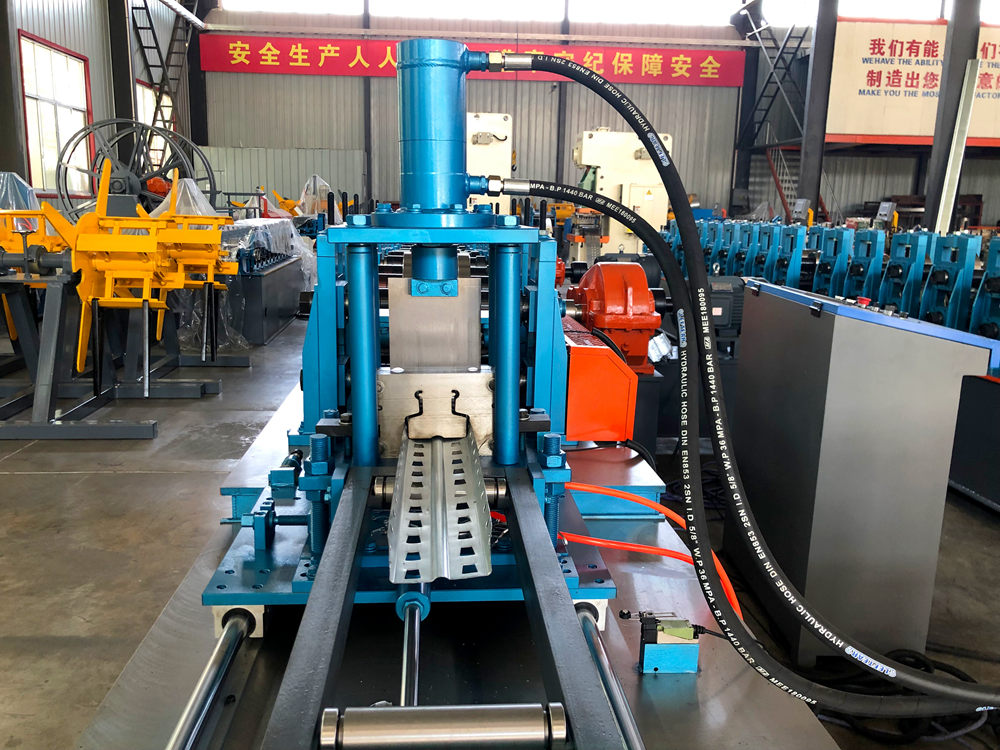
Understanding Steel Roll Forming Machines A Comprehensive Overview
In the world of manufacturing, efficiency and precision are paramount. Among the various technologies employed to enhance production capabilities, the steel roll forming machine stands out as a noteworthy innovation. This article delves into the functionality, applications, and benefits of steel roll forming machines, shedding light on why they have become integral to modern manufacturing processes.
What is a Steel Roll Forming Machine?
A steel roll forming machine is a specialized piece of equipment used to create continuous metal profiles from coiled steel. The process involves feeding a long strip of metal into a series of rollers, which gradually shape the material into a specific cross-section as it moves through the machine. Each roller performs a particular function, bending the material slightly until the desired shape is achieved. Common products made from this process include roofing sheets, structural beams, and various types of channel and angle iron.
The Roll Forming Process Explained
The roll forming process begins with the selection of suitable raw material, typically a steel coil. The material is unwound and fed into the machine, where it passes through a series of forming rolls. These rolls are precisely engineered to impart the desired shape by gradually bending the metal strip.
After the forming process, the shaped metal can undergo further operations, such as cutting to length and adding additional features like holes or notches. Depending on the design requirements, the machine may also incorporate secondary operations to improve functionality or aesthetics. The end result is a high-quality product that meets exact specifications.
Applications of Steel Roll Forming Machines
Steel roll forming machines are incredibly versatile and find applications across various industries, including
1. Construction In the construction sector, these machines are used to produce roofing panels, wall panels, and framing components, enabling quicker and more efficient building processes.
2. Automotive The automotive industry employs roll forming to manufacture components like chassis reinforcements and trim pieces, where precision and strength are crucial.

4. Furniture Steel roll forming machines can also be used to create structural components for furniture, including frames for chairs and tables, where durability is essential.
Benefits of Steel Roll Forming Machines
The advantages of utilizing steel roll forming machines are significant. Here are a few key benefits
1. Cost Efficiency Roll forming reduces material waste and allows for high-speed production, which can significantly decrease manufacturing costs. The ability to produce long lengths of parts without the need for additional cuts or joins can also save money.
2. Precision and Consistency The process is known for its high level of accuracy and uniformity, resulting in components that meet stringent tolerances. This consistency can enhance the quality of the final product.
3. Design Flexibility Roll forming can produce complex shapes and profiles, allowing manufacturers to innovate and create unique products that stand out in the market.
4. Durability Products made from roll-formed steel are known for their strength and durability, making them suitable for structural applications where load-bearing capacity is critical.
5. Time Savings The speed of the roll forming process enables rapid production cycles, allowing manufacturers to respond quickly to market demands and customer needs.
Conclusion
Steel roll forming machines represent a vital technology in contemporary manufacturing. Their ability to produce precise, high-quality components efficiently has made them indispensable across various industries. As manufacturing processes continue to evolve, the role of steel roll forming machines will likely expand, offering further opportunities for innovation and efficiency in production. Understanding their functionality, applications, and many benefits can empower manufacturers to leverage this technology to enhance their operations and better meet the demands of a competitive market.